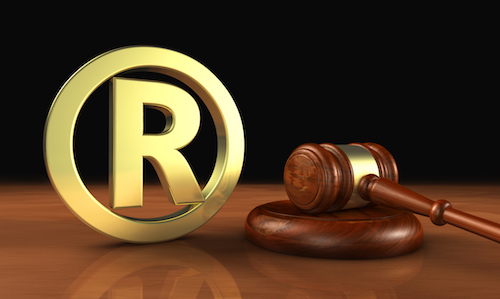The Fourth Circuit upheld all of the equitable remedies and damages awarded by the district court, including attorneys’ fees for several indicia of bad faith, including pervasive breach of the settlement agreement and false assurances from Group’s general counsel.
 On August 9, the U.S. Court of Appeals for the Fourth Circuit issued a ruling in Dewberry Engineers Inc. v. Dewberry Group, Inc. in which the appellate court affirmed a series of district court orders, including a $43 million profit disgorgement award for trademark infringement. The Fourth Circuit also affirmed an attorneys’ fees award for pervasive breaches of a previous agreement settling trademark claims between the commercial real estate firms in the case. Dissenting from the majority was Circuit Judge A. Marvin Quattlebaum.
On August 9, the U.S. Court of Appeals for the Fourth Circuit issued a ruling in Dewberry Engineers Inc. v. Dewberry Group, Inc. in which the appellate court affirmed a series of district court orders, including a $43 million profit disgorgement award for trademark infringement. The Fourth Circuit also affirmed an attorneys’ fees award for pervasive breaches of a previous agreement settling trademark claims between the commercial real estate firms in the case. Dissenting from the majority was Circuit Judge A. Marvin Quattlebaum.
Dewberry Group Rebrand Breaches Confidential Settlement Agreement
Dewberry Engineers, based in Northern Virginia, filed the present lawsuit leading to the Fourth Circuit ruling in May 2020 after sending a pair of cease-and-desist letters to Dewberry Group, which provides real estate services in Atlanta, GA. The two parties had previously entered a confidential settlement agreement in 2007 allowing Atlanta’s Dewberry Group to use certain marks while preventing the use of Group’s marks in connection with architectural or engineering services. The agreement also ended Group’s challenges to Dewberry Engineers’ federally registered trademark rights.
A 2017 rebrand by Dewberry Group led Engineers to file a lawsuit alleging contract and Lanham Act claims. The district court entered summary judgment for the Engineers, finding that Group directly violated the settlement agreement by developing logos for a “Studio Dewberry” architectural design service and by performing real estate development activities in Virginia. Assessing the factors from Pizzeria Uno (1984), which lays out the likelihood of confusion test within the Fourth Circuit, the district court found a clear likelihood of confusion created by Group’s new marks. The profit disgorgement award was calculated including revenues from Group affiliate entities under common ownership that were involved in the infringing services.
On appeal, the Fourth Circuit dismissed each argument raised by Group against judgment on the breach of contract claims. There was no ambiguity in the contract language asserted by Engineers, a merger clause in the agreement prevented the presentation of parol evidence, and the negative publicity created by a blighted Group development in Charlottesville, VA, created positive reputational standing for the Engineers. Also, while Group argued that its in-house activities didn’t require an architectural license, the Fourth Circuit found that distinction to be “fanciful” as services need not be licensed to be infringing.
Settlement Agreement Between Parties Forecloses Senior Mark User Argument
On the infringement ruling, the Fourth Circuit found that the Group was foreclosed from arguing that it was the senior user of the Dewberry marks based on the clear language of the 2007 settlement agreement. Group contended that it was making a defense against infringement and not a challenge to the validity of the Engineers’ marks, but the Fourth Circuit found that to be “a distinction without a difference… Dewberry Group may very well have priority over the mark, but it waived its right to assert that claim when it agreed not to challenge Dewberry Engineers’ trademark registrations.” Reviewing the likelihood of confusion factors, including evidence of actual consumer confusion, the Fourth Circuit affirmed the district court’s summary judgment infringement ruling.
The Fourth Circuit’s Dewberry ruling also upheld all of the equitable remedies and damages awarded by the district court. While Group argued that the court’s permanent injunction prevented its founder, John Dewberry, from the use of his surname in connection with his architectural business, the appellate court noted that the injunction merely restated the settlement terms reached by the parties in 2007. The Fourth Circuit also affirmed attorneys’ fees for several indicia of bad faith, including pervasive breach of the settlement agreement and false assurances from Group’s general counsel.
Reliance on American Rice Leads to Judge Quattlebaum Dissent
The Fourth Circuit majority spent some time assessing the district court’s profit disgorgement award. Group had argued that, under the Fourth Circuit’s 2006 decision in CareFirst of Maryland v. First Care, evidence of Group’s intent to capitalize on a mark’s goodwill was required to disgorge profits. The appellate court distinguished CareFirst, noting that the present appeal included much greater evidence of Group’s bad faith. The appellate court also found no issue in the district court’s reliance on a Fifth Circuit case, American Rice v. Producers Rice Mill (2008), to determine that disgorged profits should also come from Group’s affiliates.
In his dissent, Judge Quattlebaum acknowledged that there was probably a likelihood of confusion between the Dewberry marks, such an issue should be resolved by a jury and not a court on summary judgment. He also argued that the disgorged profit award should not have been calculated based on profits from Group’s affiliates. “Unlike in American Rice, the revenues from the affiliated companies were never realized by the Dewberry Group,” Judge Quattlebaum wrote.

![[IPWatchdog Logo]](https://ipwatchdog.com/wp-content/themes/IPWatchdog%20-%202023/assets/images/temp/logo-small@2x.png)

![[Advertisement]](https://ipwatchdog.com/wp-content/uploads/2024/04/UnitedLex-May-2-2024-sidebar-700x500-1.jpg)
![[Advertisement]](https://ipwatchdog.com/wp-content/uploads/2024/04/Artificial-Intelligence-2024-REPLAY-sidebar-700x500-corrected.jpg)
![[Advertisement]](https://ipwatchdog.com/wp-content/uploads/2024/04/Patent-Litigation-Masters-2024-sidebar-700x500-1.jpg)

![[Advertisement]](https://ipwatchdog.com/wp-content/uploads/2021/12/WEBINAR-336-x-280-px.png)
![[Advertisement]](https://ipwatchdog.com/wp-content/uploads/2021/12/2021-Patent-Practice-on-Demand-recorded-Feb-2021-336-x-280.jpg)
![[Advertisement]](https://ipwatchdog.com/wp-content/uploads/2021/12/Ad-4-The-Invent-Patent-System™.png)






Join the Discussion
One comment so far.
B
August 14, 2023 09:24 amThe Fourth Circuit is nearly as inept as the CAFC
And, yeah, it doesn’t take a genius to realize that there is a likelihood of confusion b/t “Dewberry Engineers” and “Dewberry Group.” That said – it’s an issue for the jury.